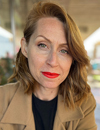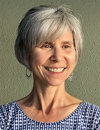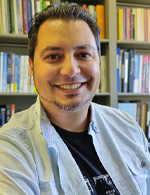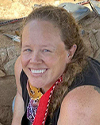
Meet Our Faculty and Staff
Important Contacts
 Department Chair
Department Chair
Matthew Lauer
Office: AL-448A | Office Hours
Email: [email protected]
 Undergraduate Advisor
Undergraduate Advisor
Keith Chan, Ph.D.
Office: AL-417 | Office Hours
Email: [email protected]
 Graduate Advisor
Graduate Advisor
Erin P. Riley
Office: AL-457 | Office Hours
Email: [email protected]
 Administrative Coordinator
Administrative Coordinator
Iris Isla
Office: AL-448
Phone: (619) 594-8450
Email: [email protected]
Faculty
 Trudi Andres
Trudi Andres
Lecturer
Office: AL-459 | Office Hours
Email: [email protected]
 Shannon B. Black
Shannon B. Black
Lecturer
Office: SH 231 | Office Hours
Email: [email protected]
 Keith Chan, Ph.D.
Keith Chan, Ph.D.
Lecturer & Undergraduate Advisor
Office: AL-417 | Office Hours
Email: [email protected]
 Cheryl Hinton
Cheryl Hinton
Lecturer
Office: AL-478 | Office Hours
Email: [email protected]
 Amanda Kearney, Ph.D.
Amanda Kearney, Ph.D.
Professor
Office: AL-421 | Office Hours
Email: [email protected]
 Jocelyn Killmer, Ph.D.
Jocelyn Killmer, Ph.D.
Lecturer
Office: AL-455 | Office Hours
Email: [email protected]
 Sam D. Kobari
Sam D. Kobari
Lecturer
Office: AL-474 | Office Hours
Email: [email protected]
 Matthew Lauer, Ph.D.
Matthew Lauer, Ph.D.
Professor & Department Chair
Office: AL-448A | Office Hours
Email: [email protected]
 Seth W. Mallios, Ph.D.
Seth W. Mallios, Ph.D.
Professor & Director, South Coastal Information Center
Office: AL-472 | Office Hours
Phone: (619) 594-4748
Email: [email protected]
 Nicole Mathwich, Ph.D.
Nicole Mathwich, Ph.D.
Associate Professor
Office: AL-486 | Office Hours
Email: [email protected]
 Arion T. Mayes, Ph.D.
Arion T. Mayes, Ph.D.
Associate Professor
Office: AL-413 | Office Hours
Phone: (619) 594-4708
Email: [email protected]
 Vijayanka Nair, Ph.D.
Vijayanka Nair, Ph.D.
Assistant Professor & Advisor, Science, Technology, and Society Studies Minor
Office: AL-476 | Office Hours
Email: [email protected]
 Oliver Paine, Ph.D.
Oliver Paine, Ph.D.
Assistant Professor
Office: AL-459 | Office Hours
Email: [email protected]
 Ramona L. Pérez, Ph.D.
Ramona L. Pérez, Ph.D.
Professor & Director, Center for Latin American Studies
Office: AL-377 | Office Hours
Email: [email protected]
 Erin P. Riley, Ph.D.
Erin P. Riley, Ph.D.
Professor & Graduate Advisor
Office: AL-457 | Office Hours
Email: [email protected]
 Erika Robb Larkins, Ph.D.
Erika Robb Larkins, Ph.D.
Professor & Director, Center for Brazilian Studies
Office: AL-626
Phone: (619) 594-5028
Email: [email protected]
 Casey Roulette, Ph.D.
Casey Roulette, Ph.D.
Associate Professor
Office: AL-484 | Office Hours
Email: [email protected]
 Savanna Schuermann
Savanna Schuermann
Lecturer
Office: AL-478 | Office Hours
Email: [email protected]
 Elisa Sobo, Ph.D.
Elisa Sobo, Ph.D.
Professor & Director, CAL Undergraduate Research
Office: AL-411 | Office Hours
Phone: (619) 594-6591
Email: [email protected]
 Isaac Ullah, Ph.D.
Isaac Ullah, Ph.D.
Professor
Office: AL-480 | Office Hours
Email: [email protected]
Staff
 Jamie Bastide
Jamie Bastide
Coordinator, Archaeology Collections Management Program & Archival Specialist South Coastal Information Center
Email: [email protected]
 Jaime Lennox
Jaime Lennox
Director, Archaeology Collections Management Program, Coordinator, University NAGPRA & Coordinator, South Coastal Information Center
Office: AL-482 | Phone: (619) 594-4575
Email: [email protected]
Joseph W. Ball
(Ph.D. University of Wisconsin, Madison 1973) Mesoamerican culture history, ceramic
analysis
Email: [email protected]
Frederick Conway
(Ph.D. American University 1978) Cultural Anthropology, applied anthropology, sustainability,
the environment and language
Email: [email protected]
Lynn H. Gamble
(Ph.D. University of California, Santa Barbara 1991) Complex hunter-gatherers, development
of socio-political complexity, archaeological method & theory, anthropological ethics,
European contact in North America, ethnoarchaeology, exchange, Cultural Resource Management;
California, North America
Philip J. Greenfeld
(Ph.D. University of Arizona 1972) Linguistics, cognitive anthropology, Athapaskan
speakers, history of theory; US Southwest, Northern Mexico
Email: [email protected]
Lois K. Lippold
(Ph.D. University of Wisconsin-Madison 1971) Physical anthropology, primate ecology
and behavior, osteology, environmental archaeology, zooarchaeology; Latin America,
Vietnam, SE Asia
Email: [email protected]
Mary Jane Moore
(Ph.D. University of Wisconsin-Madison 1971) Biological Anthropology, human biology,
genetics, medical anthropology, aging, nutritional anthropology, reproduction; Appalachia
Email: [email protected]
Wade C. Pendleton
(Ph.D. University of California, Berkeley 1970) Applied, urban, research methods,
data analysis, computers; Africa, North America
Email: [email protected]
Vivian J. Rohrl
(Ph.D. University of Minnesota 1967) Art, social anthropology, applied anthropology,
culture and personality, legal anthropology; China, Europe, North America
Email: [email protected]
Gary O. Rollefson
(Ph.D. University of Arizona 1978) Old World archaeology, Paleolithic, Neolithic,
lithic analysis
Email: [email protected]
Joseph W. Ball
(Ph.D. University of Wisconsin, Madison 1973) Mesoamerican culture history, ceramic
analysis
Email: [email protected]
Todd Braje
(Ph.D. University of Oregon 2007) Marine Historical Ecology; Coastal Archaeology;
California; Pacific Islands
Email: [email protected]
Ashni Dhawale
(Ph.D. National Institute of Advanced Studies, India 2023) Wildlife Biology; Conservation;
Animal Behavior and Cognition
Email: [email protected]
Jennifer T. Taschek
(Ph.D. University of Wisconsin, Madison 1981) Archaeological field methods and techniques,
instrument mapping and survey, technical illustration and drafting, archaeological
excavation and conservation, Maya archaeology and cultural history, Maya ideology
and urban design, faunal analysis